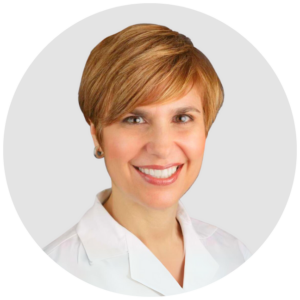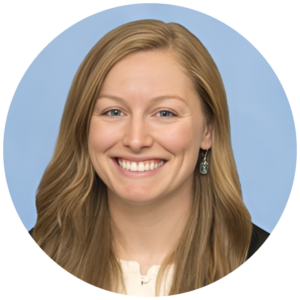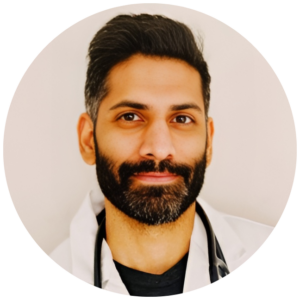One Giant Leap
What made you choose a healthcare career? It’s a simple question we’ve all had to answer at some point, whether in a job interview or the midst of a full-blown existential crisis. The answer can be revealing, offering insight into a person’s psyche, learning style, and values.
Recently, we covered a panel with three locum tenens doctors, each sharing the reasons they pursued demanding full-time physician careers before leaping into temporary locum roles. See the interesting perspectives that answer the question, “Why am I doing this?”
Medicare Reimbursement Rates Rise in Short-Term Relief Effort for US Doctors
In a rare bipartisan effort, US lawmakers agreed to increase Medicare reimbursement rates for doctors, offering temporary financial relief amid the broader challenges of the pandemic and growing demand for medical services. The Medicare adjustment is part of a broader government funding agreement to stave off a government shutdown. The increase, set at 1.68%, effective March 9, is a critical move to support healthcare providers under significant strain.
Medicare is vital to the healthcare system, and there’s been much debate over reimbursement rates; many argue they don’t reflect the actual costs of providing care. The temporary increase is necessary to aid those on the frontlines of healthcare, but it’s only a placeholder. Broader legislative healthcare reform discussions are expected to run until December. Talks will revolve around payment alignment between hospitals and doctors’ offices and the business practices of pharmaceutical middlemen.
The temporary nature of these adjustments underscores the ongoing challenges and debates surrounding healthcare policy and funding in America. The decision to increase Medicare reimbursements comes when the healthcare sector faces a looming physician shortage. Projections suggest a deficit of nearly 140,000 doctors by 2036. The recent legislative action provides temporary relief and signals the urgent need for comprehensive healthcare reform.
As the healthcare community looks to the future, there is a mix of uncertainty and hope. The increase in Medicare reimbursement rates is a positive step, but it also serves as a reminder of the systemic challenges that lie ahead.
Your Locums Prescription
MPLT Examines the Flexibility and Freedom for Physicians Via Locum Tenens
Providers feeling the strain of their current role may find a refreshing alternative in a locum tenens career, which offers flexibility, travel opportunities, and experiences that can help to reduce burnout. Many physicians like locum tenens for primary employment because they value the ability to work in various settings for different durations throughout the year. Locums allows providers to gain control over their schedule and location, catering to those seeking diversity in their professional lives and an escape from the monotony of full-time work.
As physicians approach retirement or semi-retirement, locum work presents an opportunity to remain actively involved in the medical field without full-time commitment. The locum career phase allows for continued engagement in healthcare at a manageable pace, combining the benefits of professional fulfillment with personal leisure, including travel and the pursuit of hobbies. The flexible approach to locums accommodates a variety of professional aspirations and lifestyles, from those embarking on full-time locum tenens careers to individuals easing into semi-retirement or those searching for a supplementary or less demanding schedule.
Hayes Locums Reveals Why Early-Career Physicians Should Consider Locum Tenens
For physicians fresh out of residency or fellowship programs, locum tenens presents an invaluable opportunity to facilitate professional growth while offering flexibility and competitive income. Temporary positions enable doctors to fill care gaps at healthcare facilities, allowing rookie clinicians to gain diverse clinical experiences across different practice settings, patient populations, and medical specialties. The variety inherent in locum tenens roles provides a unique platform for skill expansion, mentorship, and exposure to various healthcare environments, making it an ideal choice for those looking to broaden their clinical expertise and confidence before committing to a permanent role.
Locum tenens offers flexibility and financial benefits for early-career physicians by supporting a variety of assignment lengths and schedules, and enabling doctors to tailor their work-life balance to their personal and professional aspirations. The high demand for healthcare staffing translates into lucrative earnings and perks, such as paid travel and lodging.
Barton’s Guide to State Licensure for Locum Tenens PAs
Locum tenens roles offer physicians significant flexibility and control over their work schedules and locations, but navigating state licensure can present challenges. Barton Associates created a detailed list of what Physician Assistants (PAs) need to become licensed in each state. For PAs, obtaining a license is a state-specific process that requires graduation from an accredited PA program and passing the Physician Assistant National Certifying Exam. Many states also mandate ongoing certification by the National Commission on Certification of Physician Assistants (NCCPA) through continuous education and periodic recertification exams.
Each state sets its licensure requirements for PAs, varying from the necessity of a baccalaureate degree to specific continuing medical education (CME) credits. For example, renewal requirements can range from maintaining NCCPA certification to completing a set number of CME hours, with some states also imposing specific subject requirements for CME credits. This variation necessitates thorough research by PAs into the particular licensure requirements of each state where they wish to practice, considering both initial licensure and renewal processes. The PA License Compact simplifies the process of obtaining a license in member states for PAs already licensed elsewhere. As of March 2024, Delaware, Utah, and Wisconsin are members of the Compact, with several other states exploring legislation to join.
CompHealth Shares How Locum Tenens Reignited Two Doctors’ Love for Medicine
In a revealing insight into the transformative power of locum tenens work, CompHealth shares the journeys of healthcare professionals Dr. Tina Passalaris and Dr. Richard Rothfleisch from the brink of burnout back to a rejuvenated passion for medicine.


Physician Wellness Retreat
Senate Approves Mental Health Support Bill for Healthcare Providers

The American Medical Association (AMA), a champion of the act, heralds the passage as a critical advocacy victory. The AMA praised the collective efforts that led to this breakthrough, highlighting the association’s role in crafting legislative solutions to mitigate physician burnout and promote mental health. This initiative represents a collaborative effort to honor Dr. Breen’s legacy by reinforcing the mental health infrastructure for physicians and healthcare workers, ensuring they receive the necessary support to thrive in high-stress roles.
More Healthcare Workers Experiencing Depression, Workplace Violence
The latest report from talent marketplace Vivian Health highlights escalating stress levels, depression, and reported incidents of workplace violence by healthcare workers in America amid an ongoing staffing crisis, inflation, and other challenges. According to the report, nearly 46% of healthcare professionals are experiencing clinical depression, highlighting the mental health crisis in healthcare. The survey, which garnered responses from almost 1,000 US clinicians between December 2023 and January 2024, sheds light on the pressing need for systemic changes within healthcare settings to support the workforce effectively.
The report also delves into generational differences in the incidence of clinical depression among healthcare workers. The report showed 59% of millennials and 56% of Gen Z workers report such feelings, compared to 36% of baby boomers. In addition to mental health issues, workplace safety is also a concern for healthcare workers, with 42% of respondents feeling unsafe at their workplace in 2023, primarily due to violence perpetrated by patients.
This study calls attention to inadequate support for healthcare workers who are also parents or caregivers, with only 16% feeling that their employer sufficiently meets their caregiving needs. Half of the respondents stated their company offers no traditional caregiver benefits, although 25% reported having flexible working hours.
Physician Burnout Rates Show Slight Improvement but Remain High Post-Pandemic
The 2024 Medscape physician burnout and depression report revealed nearly half of the physicians surveyed experienced burnout, marking a slight decrease from the previous year yet significantly higher than pre-pandemic levels. Specifically, 49% of physicians indicated burnout this year, a slight improvement from 53% last year, yet a noticeable increase from the 44% reported in 2019. The survey, encompassing more than 9,200 physicians spanning more than 29 specialties, shows the persistent challenge of burnout in the medical profession.
Certain specialties have notably higher burnout rates—emergency medicine leads at 63%, followed closely by OBGYN, oncology, pediatrics, and family medicine, all reporting rates exceeding 50%. On the other end of the spectrum, specialties such as plastic surgery, ophthalmology, psychiatry, pathology, and otolaryngology reported the lowest burnout rates, all under 45%. As noted by respondents, the primary factors contributing to physician burnout include bureaucratic tasks like charting and paperwork, excessive work hours, and a lack of respect from employers, colleagues, or staff.
Doctor’s Notes
Research Links Primary Care Shortages to Higher Emergency Surgery Rates
A University of Michigan study revealed that Americans residing in regions with a dire shortage of primary care professionals, including doctors and nurse practitioners, are more susceptible to undergoing emergency surgeries and experiencing post-operative complications. The increased risk is attributed to the delay in addressing serious health issues until they escalate into emergencies.

The study focused on Medicare beneficiaries in locations where the federal government identified as deficient in primary care resources. The study found that patients in areas with the most acute shortages were significantly more likely to require emergency surgeries (38% compared to 30% in areas with lesser shortages), face higher risks of serious complications (15% vs. 12%), and suffer from hospital readmissions (nearly 16% vs. 13.5%). While the risk of death did not vary with the degree of provider scarcity, the study noted a higher likelihood of premature death among those in underserved areas—rural locations formed nearly 60% of these primary care deserts. Dr. Schaefer advises residents in high-risk areas to prioritize securing a primary care provider despite potential wait times.
Leading Healthcare Innovation, Ambient Clinical Documentation Aims to Combat Physician Burnout
At the Healthcare Information and Management Systems Society (HIMSS) conference in Orlando, Florida, last week, the spotlight was on ambient clinical documentation, an AI technology poised to revolutionize the way doctors interact with patients by allowing for the recording and automatic transcription of conversations into clinical notes. Companies like Microsoft’s Nuance Communications, Abridge, and Suki lead the charge in ambient clinical documentation, offering solutions designed to alleviate the administrative burden on healthcare providers and foster deeper patient connections.









